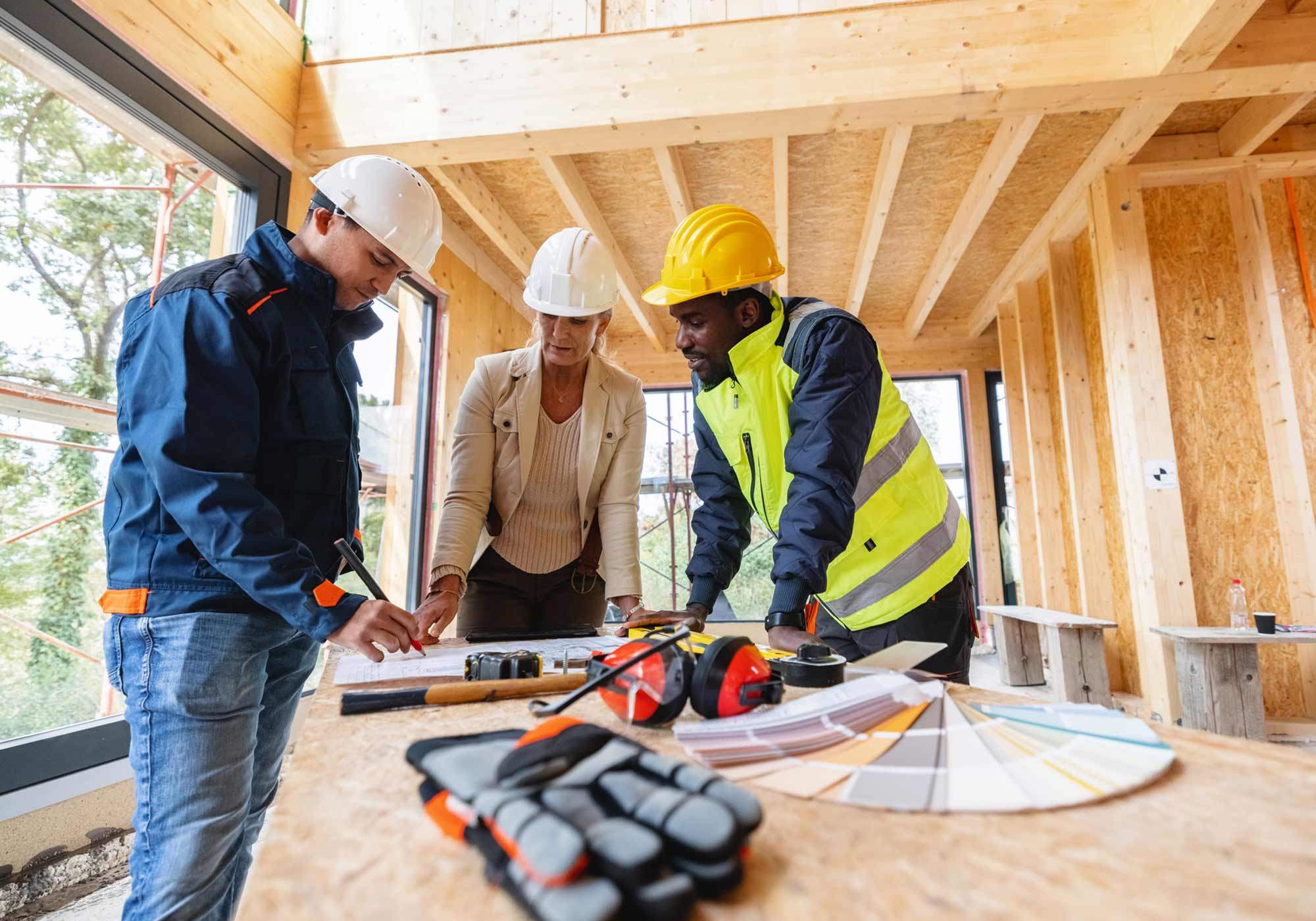Written by:
Last updated: Sep 12, 2025
Building a new home can be an exciting journey, but understanding the full scope of costs and financing options is essential to avoid unexpected expenses.
-
Land, permits, and design planning are significant early costs before construction begins.
-
Construction loans, mortgages, and home equity options can help finance your build.
-
California home construction costs range widely, from $360,000 to over $1.5 million.
So many home buyers dream of building their own home – ensuring that every detail is custom crafted with their needs in mind. But before signing a contract with a builder, it’s essential to understand the financial considerations of new home construction so that you are realistic going into this exciting – and potentially expensive endeavor.
Getting Started on Building a Home
A good way to get an idea of what the true cost of building a home would be is to break it down by the biggest factors, starting with property.
- Lot and Land
Before you can build, you’ll need to first evaluate where you will build. Unless you are building a house with a builder who has already secured the land, you will need to purchase a lot, as well as prepare it for a home – which may include tree removal, land leveling, etc. Keep in mind these potential factors before pouring foundation: design loads and structural characteristics, economic design, previous structural history, the groundwater table, topographical location, and more.
While the national average cost of land varies drastically between states, in California you can still expect to spend $1,200-$6,000 on surveying and land preparation before breaking ground on construction. - People, Plans, and Permits
You’ll need to begin planning your “musts” for the home including the size and floorplan. This includes researching your “dream team” for your home, beginning with a general contractor or custom home builder. Your contractor or builder should be able to estimate the following before you begin building and identify what areas could cause you to go over this budget:
- Building Materials: Lumber, concrete, windows
- Labor: Contactor fees, electric, HVAC, plumbing
- Project Management Costs
Once you’re ready to move forward with your team, house planning costs will depend on experience, complexity, permits, and inspections, but you can expect that to be anywhere between $500 and $10,000.
Building permit requirements are another item that varies based on location, but the cost can be between $150 and $2,000. And if you expect to add any sheds, patios, detached garages, and more, you might need additional permits from the town. - Foundation and Building
After everything has been planned, it’s time to break ground! Beginning with a foundation, followed by framing and walls, roofing, and utilities – your costs will add up quickly. Follow these tips to keep your building costs lower:
- Use standard building materials rather than custom whenever possible
- Buy energy efficient equipment (e.g., water heater, appliances)
- Determine what areas you want to splurge on and where you can be more frugal
Financial Options for your New Home
Buying a lot of land may be your first loan, or you may go right to a loan to build your home. Discover the right loan option for you based on your needs and goals when building your home.
Construction Loans and Mortgage
Traditional construction loans are short-term (generally for a year), and the funds are aimed at financing the land, building/building materials, labor, and permits. While construction loans do allow funds to go toward purchasing land, they require the land - and you - to be ready to start building as soon as possible to accommodate the timelines. With these shorter timelines, you may need to also submit approved, detailed plans to your mortgage lender.
Keep in mind that the construction loans often don’t include any design costs prior and during the building process.
With a construction loan being short-term, the lender will typically only release funds based on stages according to your progress, and an appraiser will check on the progress throughout the construction period. As the building comes to an end, you can expect to make interest payments during construction until the home is complete. You can then transition and apply for a mortgage loan. Depending on the lender, your choice in mortgages are often either a Fixed-Rate or Adjustable Rate Mortgage (ARM).
- A fixed-rate mortgage will keep your payments consistent on a monthly basis until the end of the loan period.
- Adjustable-rate mortgages (ARMs) have an interest rate that changes over time. ARMs will typically offer lower interest rates initially, but the rate can decrease or increase, potentially changing your monthly payments considerably over the loan period. This could be ideal for people looking to move before the introduction period rate changes but can be less predictable for those with less flexible mortgage budgets.
Construction-To-Permanent Loan
If you prefer to skip over the application for both a construction and mortgage loan, you can streamline the process with a construction-to-permanent loan. Construction-to-permanent loans will convert to a mortgage when the construction process is complete. You can often choose the loan’s terms and select either a fixed-rate or adjustable-rate plan.
Once the construction period is complete, your payments will cover both principal and interest, similar to traditional mortgages.
Home Equity
If you already own a home and have equity in it, you may be able to borrow against it to make payments for the construction of a new home. In this case, a home equity loan can be an option.
Home Sweet (& Expensive) New Home?
The national average cost to build a house in U.S. is $308,588, however in California you can expect to spend anywhere from $360,000 to $1,500,000. But with the rising cost of labor, as well as the ever-increasing values for top land locations, it’s important to understand what you are financially getting yourself into before you sign a contract.
At The Police Credit Union, we are ready when you are and would love to talk to you about the variety of new home financing options we have. If you want to learn more about our loan and mortgage options, contact one of our trusted loan officers. Not sure where to get started? Here are some questions to ask your mortgage lender.
External Link Alert
You are leaving our website and linking to an alternative website not operated by us. The Credit Union does not endorse or guarantee the products, information, or recommendations provided by third-party vendors or third-party linked sites.
The Credit Union is not liable for any failure of products or services advertised on those sites. Each third-party site may have a privacy policy different than the Credit Union; and the linked third-party website may provide less security than the Credit Union's website. If you click "OK", an external website that is owned and operated by a third-party will be opened in a new browser window. If you click "CANCEL" you will be returned to our website.





